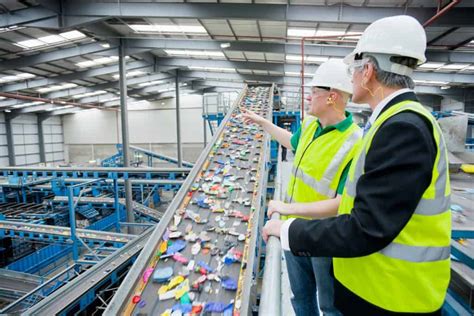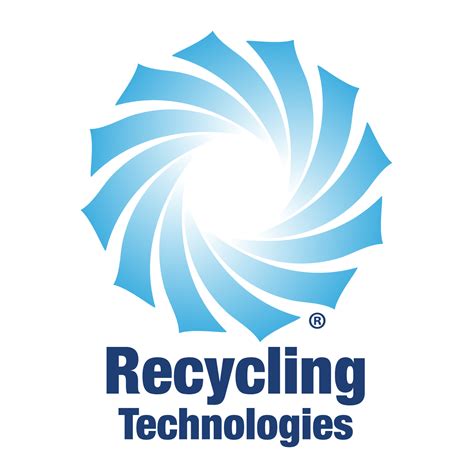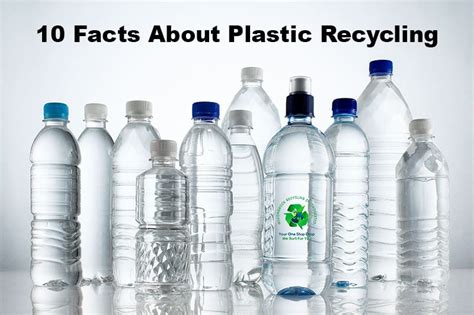Plastic Recycling Tech

Plastic pollution is a pressing global issue that demands innovative solutions. The world is waking up to the dire consequences of unchecked plastic waste, and the need for sustainable practices is more evident than ever. In this context, plastic recycling technology emerges as a crucial pillar in the fight against environmental degradation.
The quest for efficient and eco-friendly methods to manage plastic waste has led to remarkable advancements in recycling technology. From mechanical processes to chemical innovations, the field is witnessing groundbreaking developments. This article delves into the latest trends, explores the benefits, and sheds light on the potential of plastic recycling technology, offering a comprehensive overview of its role in shaping a greener future.
Unveiling the Evolution of Plastic Recycling Tech

The journey of plastic recycling technology is a testament to human ingenuity and the relentless pursuit of environmental sustainability. Over the years, the industry has transformed from rudimentary manual sorting to sophisticated, automated processes.
Mechanical Recycling: A Traditional Approach
Mechanical recycling, one of the earliest forms of plastic recycling, involves grinding and melting plastic waste to create new products. This process has been a staple in the industry, offering a cost-effective solution for recycling common plastics like PET (Polyethylene Terephthalate) and HDPE (High-Density Polyethylene). While effective for certain types of plastics, mechanical recycling has its limitations, especially when dealing with complex, multi-material products.
| Plastic Type | Recycling Rate |
|---|---|
| PET (Polyethylene Terephthalate) | 76% |
| HDPE (High-Density Polyethylene) | 36% |
| PP (Polypropylene) | 5% |

Despite its limitations, mechanical recycling has been instrumental in diverting a significant amount of plastic waste from landfills, contributing to a more circular economy.
Chemical Recycling: Unlocking New Possibilities
Chemical recycling, often hailed as the next frontier in plastic recycling, offers a more versatile approach. This process involves breaking down plastic molecules into their basic chemical building blocks, which can then be reassembled into new, high-quality plastics. Chemical recycling methods, such as pyrolysis and depolymerization, have the potential to recycle a wider range of plastic types, including complex and contaminated waste.
For instance, pyrolysis, a process that involves heating plastic waste in the absence of oxygen, can convert plastic into valuable resources like fuel oil, gas, and carbon black. This not only reduces plastic waste but also provides an alternative energy source.
The Benefits of Advanced Plastic Recycling Technology

The advantages of investing in and adopting advanced plastic recycling technologies are far-reaching and impactful.
Environmental Impact
Perhaps the most significant benefit is the positive environmental impact. By recycling plastics, we reduce the demand for virgin plastic production, which often involves extracting and processing fossil fuels. This, in turn, leads to a decrease in greenhouse gas emissions and a reduction in the environmental footprint of the plastic industry.
Resource Conservation
Plastic recycling conserves valuable resources. For every ton of recycled plastic, we save approximately 700 gallons of oil, reducing the strain on non-renewable energy sources. Additionally, recycling reduces the need for raw materials, such as natural gas and coal, used in plastic production, thus preserving these resources for future generations.
Economic Advantages
Plastic recycling also presents economic opportunities. The recycling industry creates jobs and stimulates local economies. Furthermore, recycled plastics often cost less than virgin plastics, making them an attractive option for manufacturers, which can lead to cost savings across various industries.
Case Studies: Real-World Applications
Several innovative companies and projects showcase the real-world applications and success stories of advanced plastic recycling technologies.
Project STOP: Fighting Plastic Pollution in Indonesia
Project STOP, a collaborative initiative between the Plastic Solutions Fund and Systemiq, aims to combat plastic pollution in coastal communities. By implementing a circular economy approach, they’ve established waste collection systems, recycling facilities, and education programs in Indonesia. Through their efforts, they’ve prevented over 15,000 tons of plastic waste from entering the ocean, demonstrating the effectiveness of well-implemented recycling technologies.
PyroGenesis: Leading the Way in Chemical Recycling
PyroGenesis Canada Inc., a high-tech company, has developed an innovative plasma pyrolysis technology for the chemical recycling of plastics. Their process can convert end-of-life plastics into high-value hydrocarbon products, showcasing the potential for waste-to-energy solutions. This technology has been successfully implemented in various industrial settings, proving its viability and impact.
The Future of Plastic Recycling Technology
Looking ahead, the future of plastic recycling technology is promising and filled with potential. As research and development continue, we can expect to see even more efficient and sustainable recycling processes.
Bioplastic Integration
Bioplastics, derived from renewable biomass sources like corn starch or vegetable oils, are gaining traction. These materials can be designed to be fully biodegradable or compostable, offering an eco-friendly alternative to traditional plastics. Integrating bioplastics into the recycling stream presents new challenges and opportunities, as they require different processing methods.
Smart Recycling Systems
The integration of artificial intelligence and the Internet of Things (IoT) into recycling systems is another exciting development. Smart recycling bins, equipped with sensors and machine learning algorithms, can optimize waste sorting and collection processes. This technology can enhance recycling efficiency and provide valuable data for waste management strategies.
Global Collaboration and Policy Support
The success of plastic recycling initiatives relies on global collaboration and supportive policies. Governments, industries, and communities must work together to implement effective recycling strategies. Policy incentives, such as extended producer responsibility (EPR) programs, can encourage manufacturers to adopt more sustainable practices and invest in recycling technologies.
How can individuals contribute to the plastic recycling movement?
+Individuals play a crucial role in the plastic recycling journey. Simple actions like proper waste segregation, supporting brands with sustainable packaging, and participating in community recycling initiatives can make a significant impact. Additionally, staying informed and advocating for environmental policies can drive change at a larger scale.
What are the challenges faced by the plastic recycling industry?
+The industry faces challenges such as complex waste streams, low-quality recycled materials, and a lack of infrastructure in certain regions. Overcoming these hurdles requires innovation, investment, and collaboration between stakeholders.
How does plastic recycling technology contribute to a circular economy?
+Plastic recycling technology is a key enabler of the circular economy, where resources are kept in use for as long as possible. By recycling plastics, we reduce the need for virgin resources, minimize waste, and create a more sustainable and efficient system.
In conclusion, plastic recycling technology is not just a solution; it’s a revolution. With each innovation, we move closer to a sustainable and plastic-wise future. As we continue to explore and implement these technologies, we must remember that the power to create change lies not only in scientific advancements but also in the collective actions of individuals, industries, and governments.



